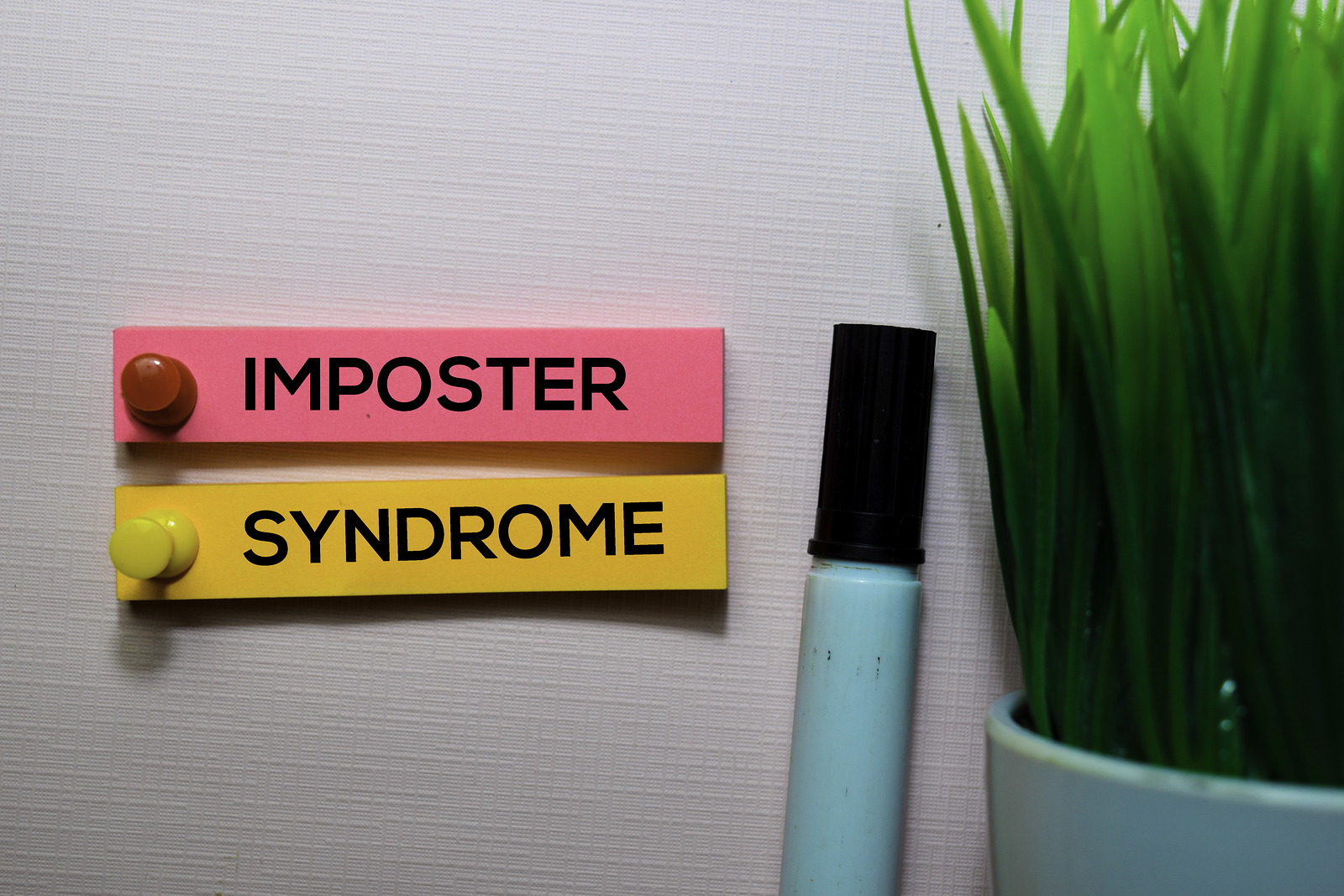January 3, 2020
by Tina Arnoldi
 Imposter syndrome has a significant impact on women entrepreneurs as discussed in an earlier post. Twitter chats explore how to address this in specific fields, such as medicine and there is research examining mitigating factors. But managing imposter syndrome isn’t about denying it. Belief about lack of ability may be a reality in some cases, but there are ways to manage it.
Imposter syndrome has a significant impact on women entrepreneurs as discussed in an earlier post. Twitter chats explore how to address this in specific fields, such as medicine and there is research examining mitigating factors. But managing imposter syndrome isn’t about denying it. Belief about lack of ability may be a reality in some cases, but there are ways to manage it.
Kimberly Cutchall, with Talent Plus, Inc. stresses the importance of how we approach opportunities and view situations. Although she started her business with a mindset of perfection, she realized that “mistakes are actually good” and valued “acting with grace in not having all the answers and showing humility in asking for help and guidance along the way." Cutchall adds, “I never felt like an imposter because I didn’t pretend to have it all figured out or feel that I owed anyone anything other than my best.”
Our approach to managing imposter syndrome depends on how we think. Janie Jurkovich, author of “Live the Life You Have Imagined”, says women need to reprogram their brains to believe they are worthy, capable and have value. Jurkovich said “You must tell yourself (repeatedly) that you are smart, worthy, competent, valuable, and you deserve a seat at the table of life. This positive self-talk literally rewires our brains so that eventually we believe it.“
Our thoughts then come out in our words. This hit home for Hilary Young when she re-considered how she introduced herself to other people. “I would say things to people like ‘I'm taking on freelance work,’ or ‘I'm doing my own thing now,’ said Hillary, “and I don't think I realized how much that was undercutting my value, both to myself and to others. After that, I never introduced myself to anyone without mentioning that I run my own business.”
It’s also okay to share those thoughts - and words - with other people. Jandra Sutton, host of The Wildest Podcast believes “the best strategy for dealing with imposter syndrome is to talk about it. Connect with a mentor or a group of fellow entrepreneurs, ask questions, and don't be afraid to be honest. It wasn't until I had a conversation with another female entrepreneur about rates, experience level, and the opportunities they'd secured that I started to realize just how much I'd been undercutting myself.”
Although these suggestions may benefit individuals for a short period of time, Dr. Carla Marie Manly believes it’s a complex issue that needs to be addressed from multiple levels. “The corporate structure needs to address the practices (overt and subtle) that foster the biases that lead to imposter syndrome. From revamping company pay and hiring practices to bringing more women into C-suite positions, businesses need to address this issue from the inside out. It’s also vital that women work together to facilitate self-efficacy via purposeful self-growth work. As a woman faces her own fears and anxieties—and makes the effort to address the internal beliefs and practices that hold her back—she will conquer imposter syndrome and become her optimal self.”
But for some experts, the way to deal with imposter syndrome is to not deal with it. Daisy Jing, CEO of Banish, doesn’t pause to watch other people's lives. “With comparison comes envy, discontentment and self-doubt.” Maryna Shkvorets, a public speaking coach, said "when thoughts like these creep in, instead of fighting this impostor syndrome, I embrace it. I tell myself: ‘Okay, maybe I'm an impostor. So what?’ Then I continue with my crazy plan anyway!"
Tina Arnoldi, MA is a marketing consultant and freelance writer in Charleston SC. Learn more about her and connect at TinaArnoldi.com